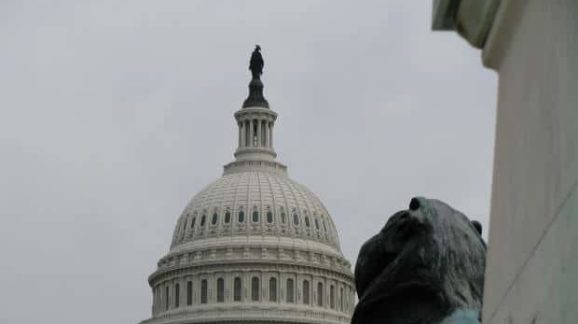The Crushing Burden of Government Regulation
Anyone concerned about the future of jobs and economic competitiveness in America must have been disappointed by the litany of free lunches and new government regulations and taxes President Obama proposed in his State of the Union address last week. Is this the same man who, just a few years ago, admitted that government regulation too often raises costs, adds excessive burdens, and imposes "absurd and unnecessary paperwork requirements that waste time and money"?
Regulatory reform no longer seems to be a White House priority — if it ever really was. Fortunately, there is a growing recognition among legislators from both parties that overregulation stifles the economy, suppresses job growth, and inhibits innovation. Across the political spectrum, it's become clear how important it is to rein in the regulatory Leviathan.
Earlier this month, Rep. Collin Peterson (D., Minn.) joined Rep. Bob Goodlatte (R., Va.) to introduce the Regulatory Accountability Act of 2015. And according to the Washington Post, a band of moderate House and Senate Democrats appear willing to work with the new Republican majorities on a broad range of issues, from authorizing the Keystone XL oil pipeline to alleviating some of the worst impacts of Obamacare. This is good news since, as the saying goes, admitting you have a problem is the first step to (economic) recovery.
And what a problem it is. As the Competitive Enterprise Institute's Wayne Crews reports, the Obama administration finalized more than 3,600 new regulations last year and proposed over 2,300 more. Along with the countless other regulations already in place, those rules and restrictions impose a drag on the American economy of at least $1.9 trillion. And the federal Office of Management and Budget estimates that government information requests alone require over 9 billion (yes, billion with a "b") hours of paperwork annually.
The total impact is probably far higher than these estimates because, as Crews points out, economic costs are calculated for only a handful of the rules government imposes each year. And in the era of Obama's "pen and phone" governing strategy, countless more restrictions are imposed through presidential memoranda, executive orders, guidance documents, and other non-rule mechanisms whose costs are not scrutinized at all.
Making the regulatory process more transparent, so we the people can hold our government more accountable, would be a great first step for the 114th Congress to take. Passing the Regulatory Accountability Act should be an easy win.
While they're at it, Congress should enact the Regulations from the Executive In Need of Scrutiny (REINS) Act, reintroduced in the 114th Congress last week by Sen. Rand Paul (R., Ky.) and Rep. Todd Young (R., Ind.). REINS would make the unelected bureaucracy more accountable by requiring Congress to ratify all proposed rules with estimated annual costs of $100 million or more.
But the need for regulatory reform doesn't stop with procedural rules. On a whole host of issues, from banking and finance, to energy and transportation, to labor and employment, there are dozens of low-hanging opportunities for commonsense reform that should attract bipartisan support. Here are just a few.
Three years ago, Democrats and Republicans joined together to enact the Jumpstart Our Business Startups (JOBS) Act to reform U.S. securities law and make it easier for small businesses to raise capital. That law was a good start, but more needs to be done. So, Rep. Patrick McHenry (R., N.C.) is building support for a JOBS Act II, whose passage should be a no brainer for legislators of both parties.
Next, Congress should take on giveaways to business cronies that have long been rationalized as necessary for market efficiency. Last year's fight over reauthorization of the Export-Import Bank showed just how fed up the American public is with billion-dollar transfers of taxpayer cash to politically connected businesses. Congress just barely reauthorized Ex-Im, wind-power subsidies, and various other boondoggles in 2014. But a bipartisan coalition should seize the opportunity to kill off these white elephants as they expire later this year.
On health care, Energy and Commerce Committee Chairman Fred Upton (R-Mich.) has teamed up with Ranking Member Diana DeGette (D., Colo.) to bring needed reform to the Food and Drug Administration's regulation of the drug and medical-device development process. FDA's rules for testing and approving new drugs have changed little in the past 60 years. They should be streamlined to take advantage of new computational tools, better understanding of disease pathways, and other technological advances that can help speed promising new medicines to market while improving patient safety.
These examples, and many others not listed here, show that Democrats and Republicans can work together to reduce the crushing burden of government interference in our economy. This kind of bipartisan regulatory reform is just what we need to stimulate America's economy, reinvigorate job growth, and move our country forward with a real pro-growth agenda.
